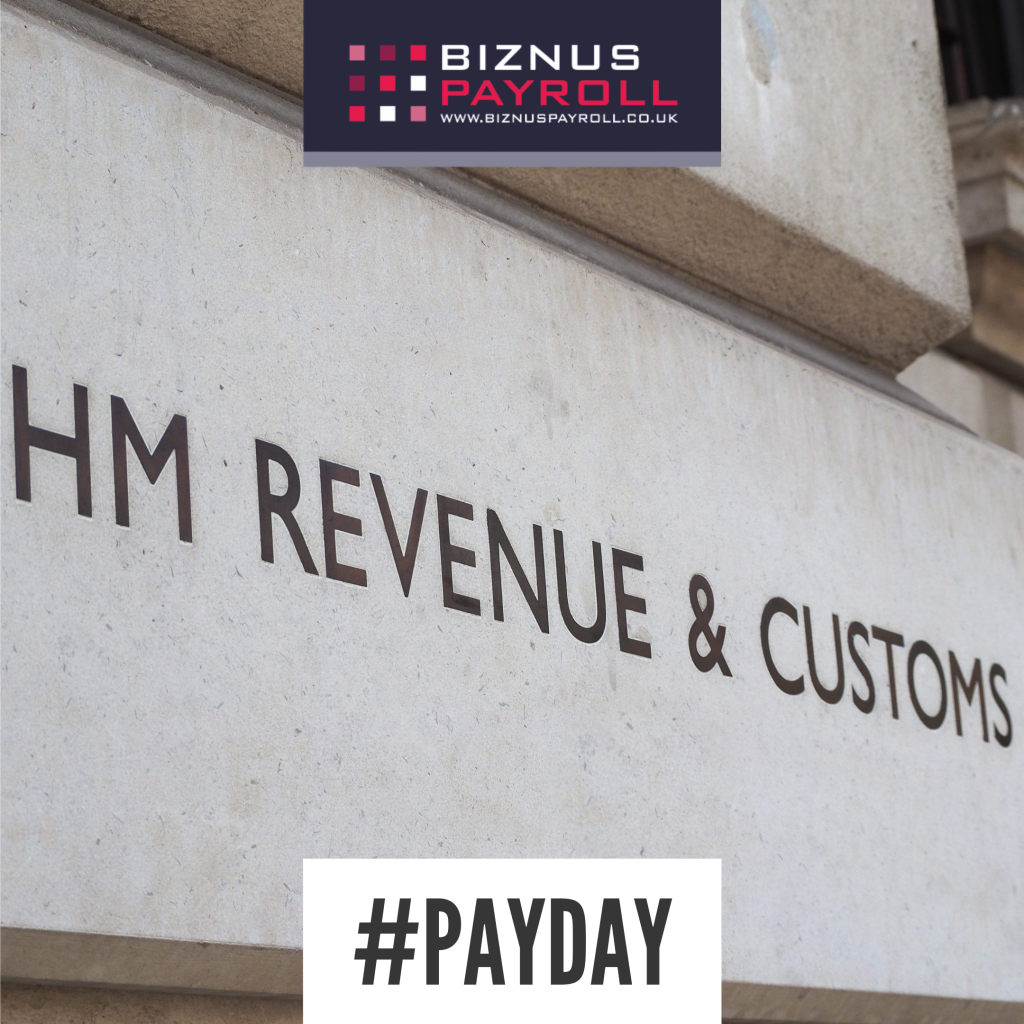Overview
If you make payments electronically, you must pay your PAYE bill to HMRC by: –
- 22nd of the next tax month if you pay monthly
- 22nd after the end of the quarter if you pay quarterly, in each tax year that means payments are due on the 22 July, 22 October, 22 January and 22 April.
HMRC is encouraging all customers to pay electronically as this is the easiest and most efficient way to pay.
If you pay by cheque through the post the deadline for receipt is the 19th of the month.
Always pay what your payroll output says you owe on your PAYE liability/payment report provided to you each month or quarter.
Do not rely on the HMRC Employers Online Account to provide you with the most accurate and up-to-date information – if you discover a discrepancy in your Employer’s HMRC Online Account to what has been advised to you to pay, please first check your previous ‘payments and allocations’ first, if you suspect HMRC have not got the correct information please discuss this with your payroll account manager to rule out any common or known reasons for the difference.
Ways to pay
You need to make sure your payments are received by HMRC’s stated deadlines as noted above. Otherwise, you may have to pay interest and penalties if your payment is late.
Paying HMRC by Online or Telephone Banking (including Faster Payments, BACS and CHAPS)
| Sort Code | Account Number | Account Name | Payment Reference* | CHAPS Instruction |
|---|---|---|---|---|
| 08-32-10 | 12001039 | HMRC Cumbernauld | This is your employer 13-character Accounts Office Reference e.g. XXXP@XXXXXXXX | CHAPS Form |
For overseas accounts
| Account Number (IBAN) | Bank Identifier Code (BIC) | Account Name |
|---|---|---|
| GB62BARC20114770297690 | BARCGB22 | HMRC Cumbernauld |
*Payment Reference
You’ll need to use your 13-character accounts office reference number as the payment reference. You can find this on either:
- the letter HMRC sent you when you first registered as an employer.
- the front of your payment booklet or the letter from HMRC that replaced it
- on your HMRC remittance report issued by Biznus Payroll
Your payment may be delayed if you use the wrong payment reference*.
You will need to add an extra 4 digits to the end of your accounts office reference number as the payment reference if you are paying early or late: –
- An early payment is before the 6th of the tax month or quarter payment
- A late payment is on or after the 5th off the tax month after the payment was due
The extra 4 digits are made up of the ending tax year and the tax month in that tax year, for example, if making a payment for tax month 6th May to 5th June 2022, this will convert to “2302”
The tax year ends on 5 April 2023 = 23
The tax month (6 May to 5 June 2022) is the second tax month of the year = 02
You then combine the digits leading with the 2 digits for the year followed by the 2 digits for the tax month reference.
If you are uncertain and cannot find the month and tax year reference on your payroll reports, you can contact our team for clarification.
Paying HMRC by Direct Debit
You can set up a Direct Debit through your business’s HMRC online account to make a single payment. This means you will need to set up a payment each time you pay HMRC through Direct Debit and you will need your 13-character accounts office reference* number to make a payment.
You should allow 5 working days to process a Direct Debit the first time you set one up. It should then take 3 working days the next time if you are using the same bank details. The payments will show on your bank statement as ‘HMRC NDDS’. Make sure you also enter the correct year and month the payment is for in the separate boxes provided.
Paying HMRC by Debit/Corporate Credit Card online
Card payments can be made online using your 13-character accounts office reference* number as the payment reference. Please allow 3 working days for your payment to reach HMRC’s bank account.
Paying HMRC by cheque through the post
Please note that you can only pay by post if you have under 250 employees. You should make your cheque payable to ‘HM Revenue and Customs only’ followed by your 13-character accounts office reference* number and include the payment slip for the correct period from your Payment Booklet (being discontinued from 6 April 2024) or create a payslip using HMRC’s tool – here. Do not fold the payslip or cheque or fasten them together. You can include a letter with your payment to ask HMRC for a receipt.
Cheques should be sent to:
HMRC
Direct
BX5 5BD
You can include a letter with your payment to ask HMRC for a receipt.
Paying HMRC by personal credit card
From the 13 January 2018 HMRC will no longer accept payments made from personal credit cards.
HMRC is only allowed to accept credit card payments on the basis that there is no cost to the public purse, and new legislation, which comes into effect on this date, prohibits merchants (including HMRC) from recharging associated fees back to customers.
Corporate, business and commercial credit cards are not affected by this charge and we will continue to accept personal and commercial debit cards.
Paying HMRC in person at the Post Office / Bank or Building Society
From 15 December 2017, you will no longer be able to make payments to HMRC via the Post Office.
From 6 April 2024, you will no longer be able to make payments to HMRC via your Bank / Building Society.
HMRC no longer issues Payment Booklets automatically unless requested; if you have a Payment Booklet for 6 April 2023 to 5 April 2024 you can continue to use this.
Cheques should be made payable to ‘HM Revenue and Customs only’ followed by your 13-character Accounts Office reference number. You will need to use the payslip for the correct period from your Payment Booklet. Please allow 3 working days for your payment to reach HMRC’s bank account.
From the 6 April 2024, Payment Booklets will be discontinued. You therefore will need to choose a different method of payment listed above.
Having difficulty paying HMRC?
If you can’t pay your PAYE bill on time, contact HMRC as soon as possible. You may be able to arrange a “Time to Pay” agreement; HMRC is far more amenable to those who communicate with them than those who bury their heads in the sand.
Resources:
For HMRC’s guidance on making payments please read, https://www.gov.uk/pay-paye-tax.



